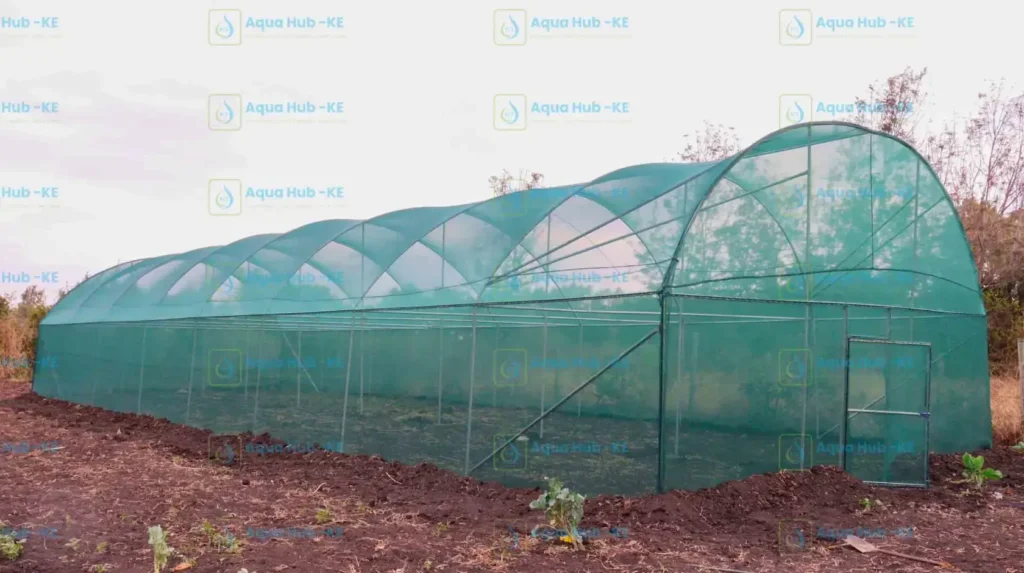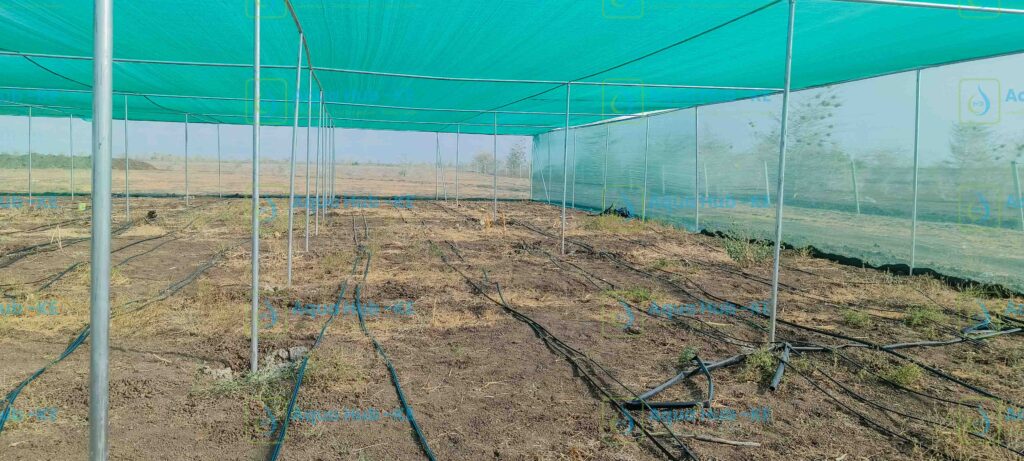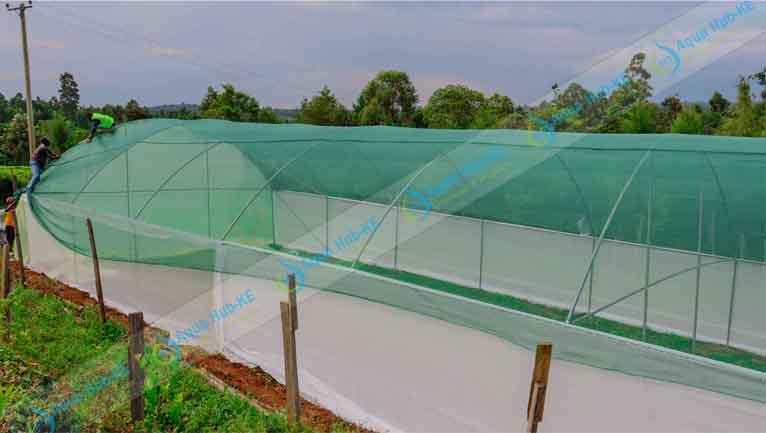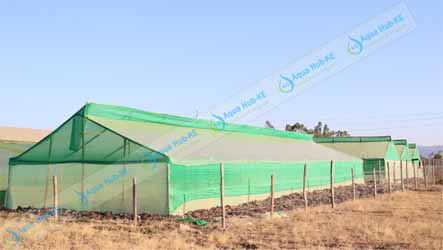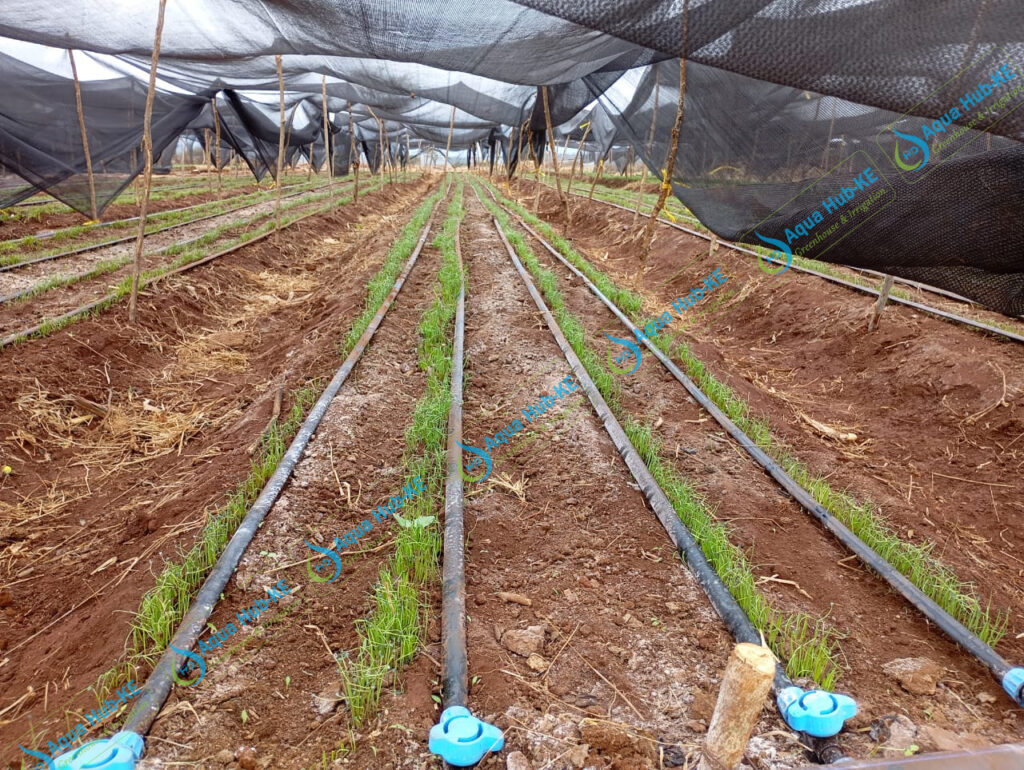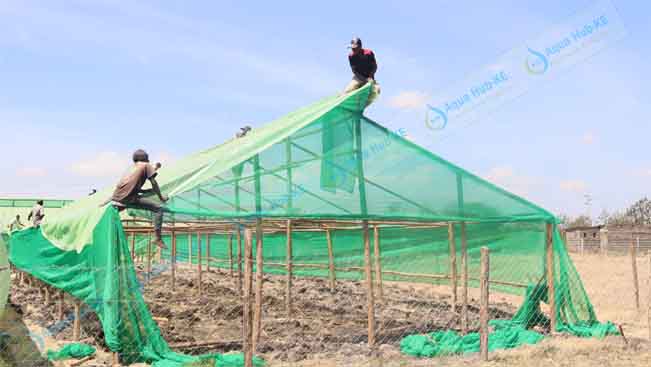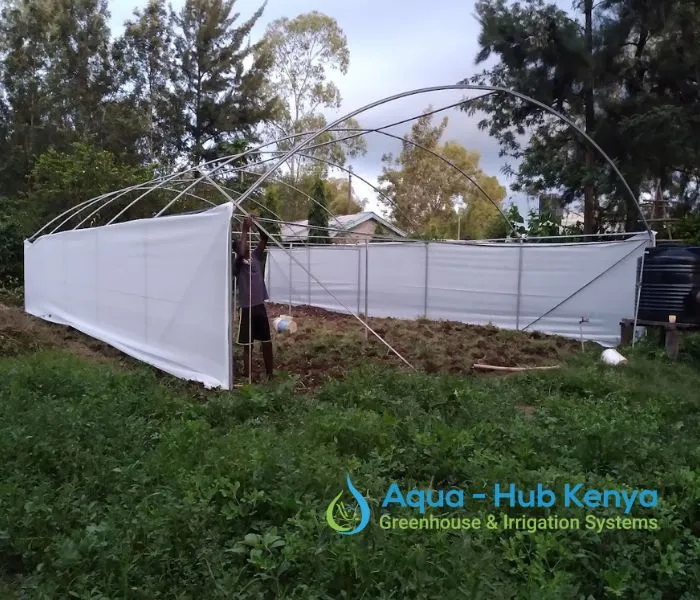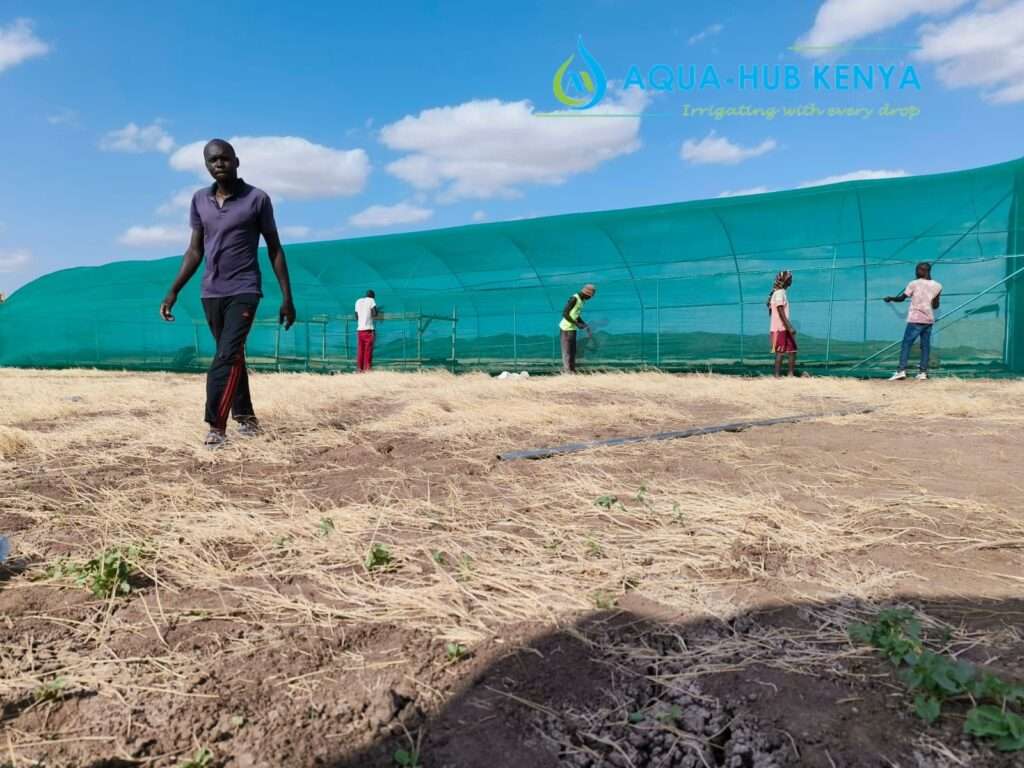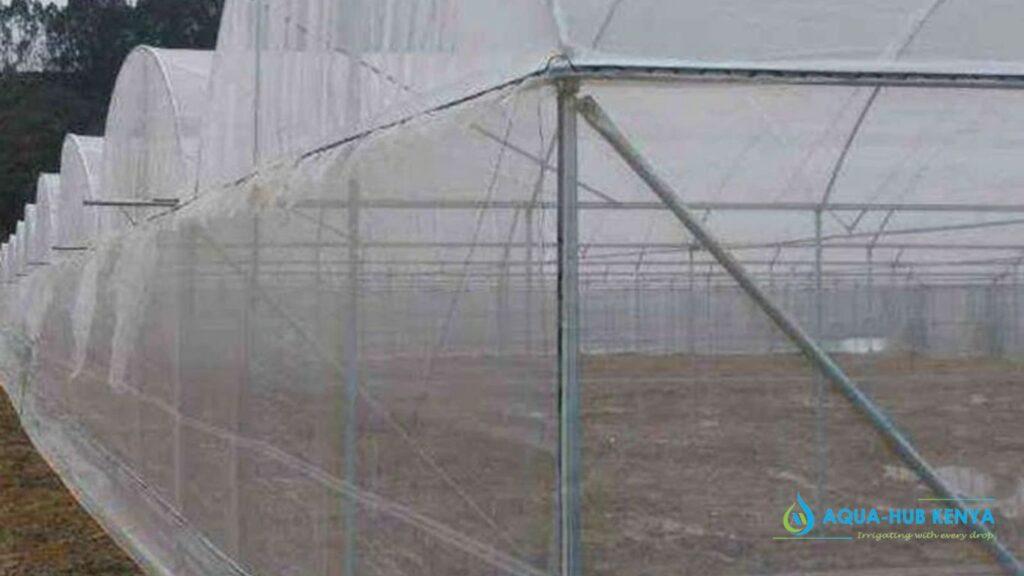Blog
Agricultural Net Supplier in Kenya | Best Quality 2025
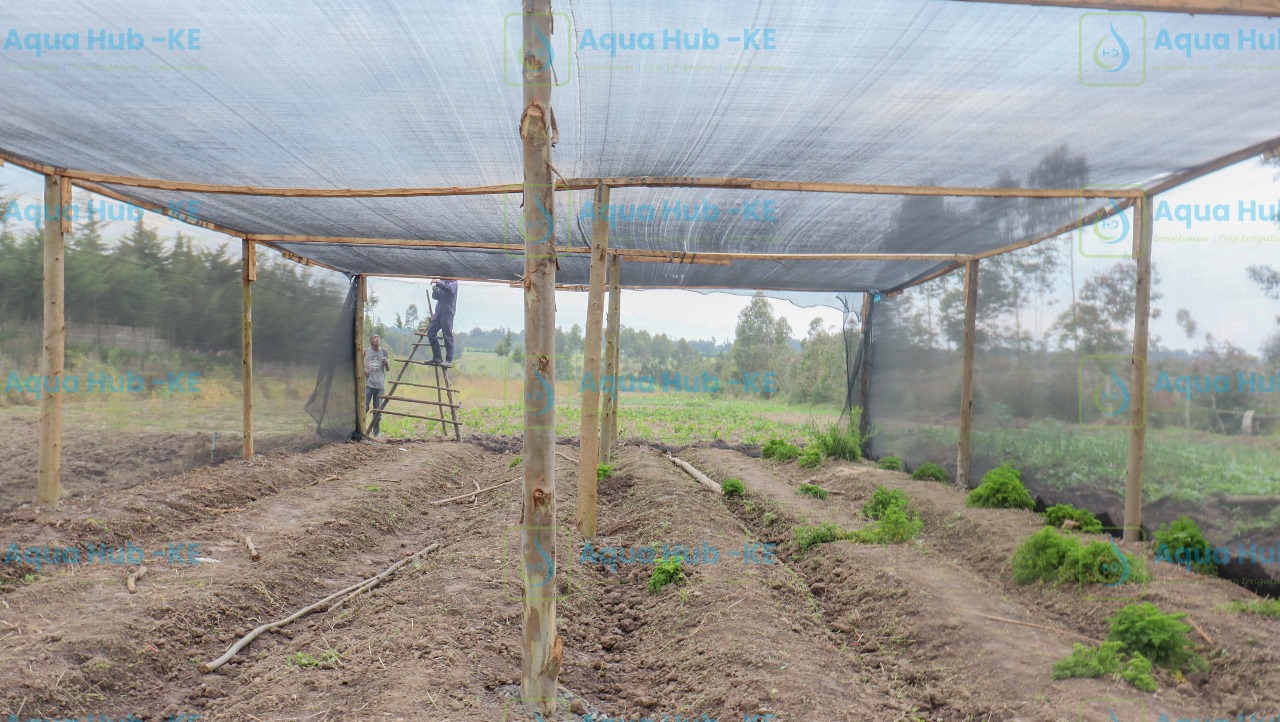
Quality UV treated agricultural net materials from Aqua Hub LTD have become popular for crop protection in Kenya. Small Scale to large scale vegetable farmers to large scale horticultural farmers in Kenya are relying on our nets to meet the growing conditions of their plants.
Are you looking for crop protection nets and climate smart solutions?
Call 0790719020 for inquiries.
But what exactly are agricultural nets? Why do farmers need them? And how can you choose the right one? This blog post answers all these questions and more.
What is an Agricultural Net?
An agricultural net is a knitted mesh material used to protect crops from the non-conducive environment, pests, insects and bird attacks. Agricultural nets in Kenya are made of UV treated Polyethylene materials.
The Importance of Agricultural Net in Kenya
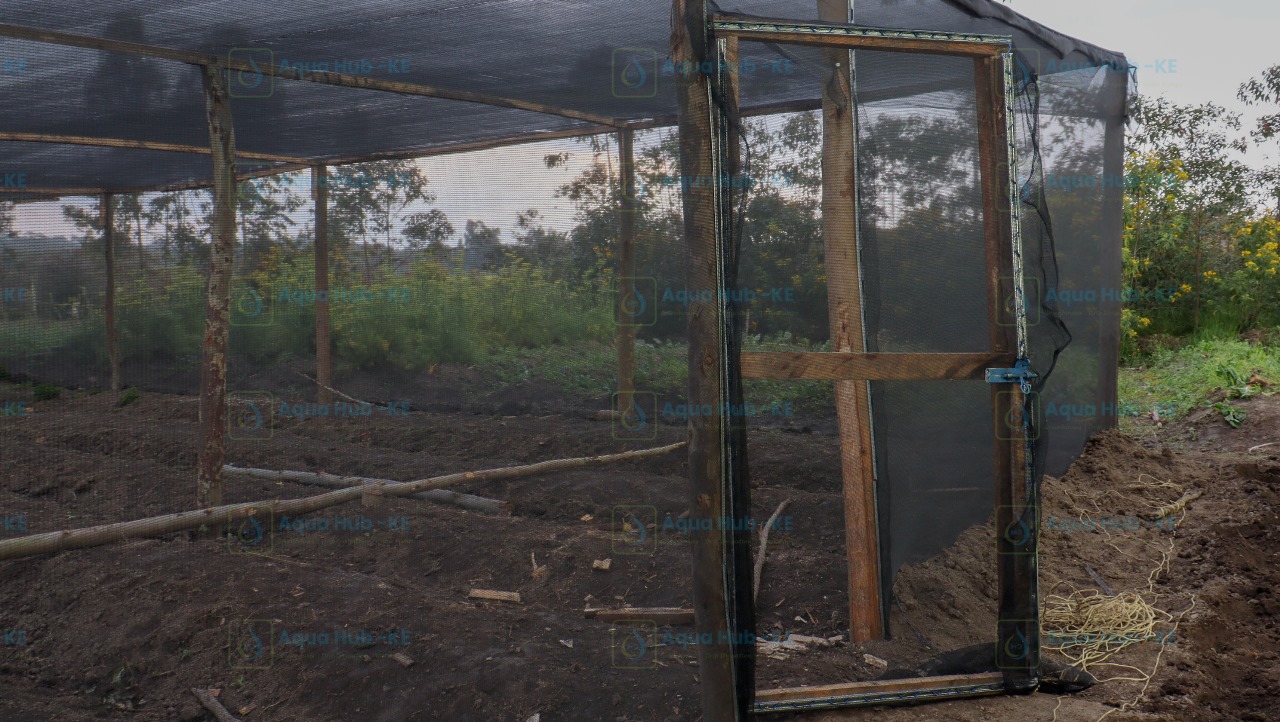
Kenyan farmers deal with many challenges that affect crop production. Some of the most common include:
- Pests and insects like aphids, whiteflies, and thrips
- Harsh weather conditions such as too much sun, strong wind, or hail
- Birds and animals that destroy crops
- Excessive rainfall which can damage delicate plants
To protect their crops, many farmers rely on chemicals. But overuse of pesticides can harm the environment and even human health. This is where an agricultural net comes in. They provide natural, physical protection without relying heavily on chemicals.
Agricultural nets are used to cover crops and create a barrier between them and harmful external elements. This simple solution can reduce crop loss and improve quality. They are especially useful in horticulture, floriculture, and high-value farming.
Agricultural Net Price in Kenya
The price of agricultural net in Kenya depends on the type, quality, size, and supplier. The cost of our agricultural nets is shown below:
|
Type of Net |
Price Range (Full Roll) |
|
Shade Net |
KES 16,000 – KES 36,000 |
|
Insect Net |
KES 13,500 – KES 15,000 |
|
Bird Net |
KES 13,000 – KES 16,500 |
Agricultural Net Supplier in Kenya
Aqua Hub LTD is a top agricultural net supplier in Kenya who specializes in quality insect nets, shade nets and bird nets. We deliver UV treated nets and go ahead to offer the best installation at negotiable rates.
Call 0790719020
Types of Agricultural Net Materials in Kenya
Different crop growing needs require differential conditions that may be different from one net to another. The most common agricultural nets available in Kenya include:
- Shade Nets
- Insect Nets
- Bird Nets
- Hail Nets
- Windbreak Nets
Each type serves a unique purpose. Let’s break them down in the next section.
Specifications of Different Agricultural Net Types
a) Shade Net
- Purpose: To control the amount of sunlight reaching the plants
- Shade percentage: Usually ranges from 30% to 90%
- Material: High-Density Polyethylene (HDPE) with UV treatment
- Colors: Green, black, and white (color affects the temperature inside)
- Used For: Vegetables, flowers, seedlings, and herbs
b) Insect Net
- Purpose: To keep away pests like aphids, whiteflies, and thrips
- Mesh Size: 40 mesh (for smaller insects) to 20 mesh
- Material: UV-stabilized polyethylene
- Used For: Tomatoes, capsicum, spinach, cabbage, and other leafy greens
c) Bird Net
- Purpose: To prevent birds from damaging fruits and vegetables
- Mesh Size: Larger than insect nets, typically 15mm–25mm
- Material: UV-treated HDPE
- Used For: Grapes, strawberries, maize, and fruit trees
d) Hail Net
- Purpose: To protect crops from hail damage
- Material: Tough UV-resistant polyethylene
- Mesh Design: Diamond or square shape
- Used For: Apples, tomatoes, and sensitive crops in highland areas
e) Windbreak Net
- Purpose: To reduce wind speed and protect crops from strong gusts
- Shade Factor: 30%–70%
- Used For: Banana plantations, nurseries, and open field vegetables
Crops Suitable for Agricultural Nets
- Tomatoes
- Capsicum
- Cabbage and kale (Sukuma wiki)
- Strawberries
- Spinach and other leafy vegetables
- Passion fruit
- Flowers (roses, carnations, etc.)
- Seedlings and nurseries
Choosing the right net depends on the specific needs of each crop and the threats they face.
How to Use Agricultural Nets
An agricultural net material can be used in several ways depending on the farm design and crop type:
- Greenhouse Netting: Covering the sides or roofs of greenhouses for insect control or shade
- Open Field Netting: Creating a tunnel or canopy structure over crops
- Vertical Netting: Using trellis nets for supporting climbing crops
- Net Houses: Building a fully enclosed net structure (insect net house) for sensitive crops
Tips for Proper Use of Agricultural Nets
- Always ensure the net is tightly secured to avoid flapping in the wind.
- Install poles or a strong frame to support the netting.
- Regularly inspect for holes or tears and repair them quickly.
Benefits of Agricultural Net Use in Kenya
- Pest and disease control without heavy use of chemicals
- Improved crop yields and quality
- Protection from weather extremes like hail, strong sun, and wind
- Extended growing seasons due to controlled micro-climate
- Reduced use of pesticides leads to healthier food
- Increased profits from high-quality produce
- Environmentally friendly farming practice
Agricultural Net Installation
- Plan your layout – Know the dimensions and choose the right type of net.
- Use quality support structures – This includes poles (metal or treated wood), wires, and clips.
- Tension the net properly – Avoid sagging or loose areas.
- Use UV-protected materials – These last longer under the Kenyan sun.
You can contact Aqua Hub LTD, a reliable agricultural net supplier for installation.
Maintenance of Agricultural Nets in Kenya
- Check for tears or holes regularly and patch them up quickly.
- Clean the nets occasionally to remove dust and debris, especially shade and insect nets.
- Store unused nets in a cool, dry place away from sunlight.
- Replace worn-out sections to maintain effectiveness.
With proper care, a good agricultural net can last 3 to 8 years depend on the type and usage.
Conclusion
As the climate continues to change and pests become more resistant to chemicals, agricultural net can offer a sustainable and affordable solution. Don’t wait until you lose a season’s harvest start exploring the best netting solution for your farm today.

